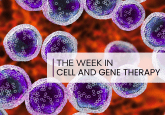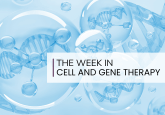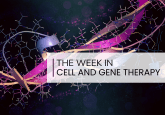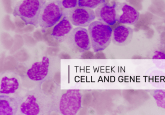Cell therapy weekly: US$4 million to advance optogenetic therapy
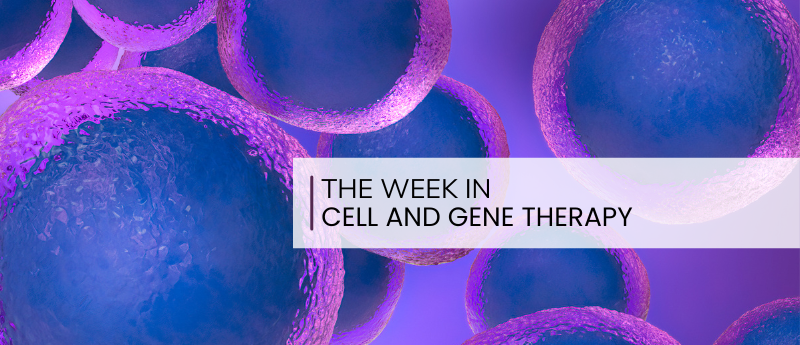
This week: The California Institute for Regenerative Medicine (CA, USA) has awarded a US$4 million grant to Ray Therapeutics (CA, USA), Legend Biotech Ireland Limited (Dublin, Ireland) has signed an exclusive global license agreement with Novartis (Basel, Switzerland) and InGeneron (TX, USA) has reported positive long-term safety and efficacy data from its clinical trial assessing the company’s cell therapy treatment for partial-thickness rotator cuff tears.
The news highlights:
- Ray Therapeutics receives US$4 million to advance optogenetic therapy
- Legend Biotech licenses CAR-T cell therapies to Novartis
- Positive long-term results from rotator cuff cell therapy trial
Ray Therapeutics receives US$4 million to advance optogenetic therapy
Ray Therapeutics has received a grant of US$ 4 million from the California Institute for Regenerative Medicine. The company will use this funding to advance the development of its optogenetic therapy RTx-021 for geographic atrophy, the advanced form of age-related macular degeneration.
In GA, the gradual loss of photoreceptors and other layers of the retina results in fading of the central vision. RTx-021 is an AAV-based gene therapy that delivers a gene encoding rhodopsin, the primary photoreceptor cell of vision, to retinal cells to restore vision.
“RTx-021 has the potential to address a significant unmet need for patients with GA AMD. The additional funding and strategic support from CIRM will accelerate development of our optogenetics candidate into clinical trials for blind and nearly-blind patients in desperate need of new therapies, without the need for supplementary eyewear or devices for additional light stimulation,” said Paul Bresge, CEO of Ray Therapeutics. “The positive vote of confidence from CIRM provides strong validation for our scientific rationale, program development and team. We look forward to advancing our candidate into clinical trials in GA AMD where patients have limited options.”
Legend Biotech licenses CAR-T cell therapies to Novartis
Legend Biotech Ireland Limited, a wholly owned subsidiary of Legend Biotech (NJ, USA), has entered an exclusive global license agreement with Novartis. The agreement concerns certain CAR-T cell therapies from Legend Biotech that target the inhibitory Notch ligand DLL3, including their autologous candidate for small cell lung cancer, LB2102.
Under this agreement, Novartis is granted exclusive global rights for the development, manufacturing and commercialization of these cell therapies. Additionally, Novartis has the option to leverage its T-Charge™ platform for the manufacturing process.
“We believe LB2102 has an innovative CAR design and armor mechanism that increases its anti-tumor activity. The preclinical evidence shows that an autologous CAR-T could be a differentiated treatment option for patients with small cell lung cancer,” said Guowei Fang, Chief Scientific Officer and Head of Business Development of Legend Biotech. “We are excited that a major pharmaceutical company with deep roots in oncology and cell therapy has chosen to further this product candidate in the clinic. We are delighted that a combination of our unique candidate design in LB2102 with the T-Charge platform may potentially offer transformative benefits to small cell lung cancer patients.”
Positive long-term results from rotator cuff cell therapy trial
InGeneron (TX, USA) has reported positive long-term safety and efficacy data from its clinical trial assessing the company’s cell therapy treatment for partial-thickness rotator cuff tears. InGeneron’s cell therapy utilizes autologous adipose-derived regenerative cells. The study followed patients for 41 months after treatment and the results demonstrated that a single injection of the cell therapy was more effective than a corticosteroid injection for improving shoulder function and reducing pain.
“The findings from this study further validate the promise of this regenerative cell therapy as a disease-modifying treatment for orthopedic conditions,” stated InGeneron’s Executive Chairman Eckhard Alt. “I am excited about the long-term efficacy of the treatment indicated in this study and the prospect of offering a minimally invasive treatment option for many patients who do not find relief from the treatments available today. We believe these findings mark a significant milestone toward advancing the standard of care for partial-thickness rotator cuff tears by offering a durable, regenerative alternative to the traditional corticosteroid treatment pathway.”


